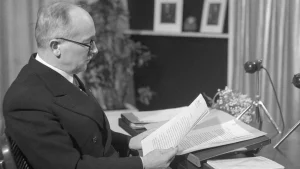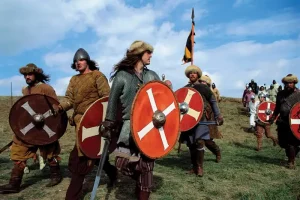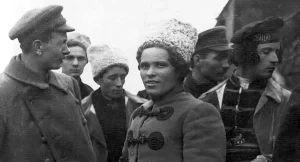The intellectual and cultural bedrock of the modern Western world owes much to the thinkers of ancient Greece and Rome. However, following the decline of the Western Roman Empire, much of this classical heritage became fragmented or lost to Latin Christendom. It was an era less defined by darkness, perhaps, than by disconnection. Yet, the innate human drive for knowledge persisted, awaiting a spark. Unexpectedly, that spark came from the tumultuous period of the Crusades, which, through increased contact with the Byzantine Empire and the Islamic world, facilitated a remarkable reintroduction of classical learning, ultimately reshaping the intellectual landscape of Europe forever.
The Crusades: An Unexpected Catalyst for Intellectual Revival
In 1098, Pope Urban II delivered a rousing speech in Clermont, igniting the flames of the First Crusade. His call to arms focused on the purported persecution of Christians in the Holy Land under Islamic rule, urging the knights of Europe to reclaim these territories from those he termed “heathen.” While historical accounts suggest Christians in Muslim lands generally experienced tolerance, Urban’s exaggerated plea resonated deeply, met with fervent cries of “Deus Volt!” (God wills it!). This moment unified Latin Christendom under a common, militant banner and asserted the Church’s influence in temporal matters, significantly sharpening the divide between Eastern and Western Christianity and Islam – a division with echoes lasting centuries.
However, beyond the intended political and religious consequences, Pope Urban’s call set in motion a series of events with a profound, unforeseen outcome: the reawakening of classical knowledge in Western Europe. The centuries following the collapse of Rome in the West had seen a fading of familiarity with the great works of Greek philosophy, science, and literature. While intellectual life hadn’t vanished, it had narrowed its focus, losing touch with the broader classical tradition.
The Crusades, by their very nature, forced Europeans eastward. These journeys were fraught with violence and conquest, but they also inevitably led to interaction and exchange. Crusaders encountered different cultures, climates, and customs. They brought back tangible goods that tantalized European senses – exotic spices like cinnamon, nutmeg, and black pepper, and fruits like oranges, broadening culinary horizons. Far more significant than these new tastes, however, was the encounter with a lost intellectual world. In the East, particularly within the Byzantine Empire and the thriving Islamic civilizations, the heritage of ancient Greece wasn’t a distant memory; it was a living, breathing part of their intellectual culture. This encounter would prove transformative for the West.
Guardians of the Flame: Byzantium and the Islamic World
While Western Europe had largely lost direct access to its Greek intellectual roots, two major civilizations in the East had not only preserved but actively engaged with this heritage.
The Byzantine Empire, established by Emperor Constantine I in 330 CE as the eastern continuation of the Roman Empire, endured for over a thousand years until the fall of Constantinople in 1453. Situated in the East and governing a predominantly Greek-speaking populace, Byzantium naturally underwent a process of Hellenization. By the reign of Emperor Heraclius (610-641 CE), Greek had become the official language, and emperors adopted the Greek title basileus instead of the Latin imperator. As the direct inheritor of the Greco-Roman tradition and a Greek-speaking state, Byzantium maintained a continuous and intimate relationship with ancient Hellenic texts. These weren’t viewed merely as historical artifacts but as vital components of their cultural identity and intellectual toolkit.
Byzantine scholars frequently studied and reflected upon pagan classical works, skillfully adapting the lessons within to their Christian framework. A notable example is Theodore Metochites (1270-1332 CE), a prominent scholar and statesman. His study of Ptolemy’s Almagest, a seminal 2nd-century Greek work on astronomy and mathematics, led him to embrace the certainty of mathematical truths. This influenced his theological views, concluding that God was ultimately beyond human comprehension, an object of faith rather than empirical knowledge. For the Byzantines, engaging with Plato, Aristotle, Ptolemy, and others was a dynamic process, using ancient wisdom to explore the deepest questions of their own time.
Simultaneously, the Islamic world, particularly during the Abbasid Caliphate (750-1258 CE), experienced a golden age of intellectual activity heavily influenced by ancient Greek thought. A vast translation movement brought numerous Greek manuscripts into Arabic, sparking centuries of commentary, debate, and innovation. The works of Aristotle, in particular, were held in enormous esteem and became central to educational curricula across Islamic lands. The vibrancy of this engagement is exemplified by the polymath Ibn Al-Haytham (known in the West as Alhazen, 965-1040 CE). In his work Doubts on Ptolemy, he critically examined Ptolemy’s astronomical models, proposing alternative systems for planetary motion partly inspired by Aristotelian physics.
Like their Byzantine contemporaries, Islamic scholars didn’t just preserve these texts; they wrestled with them, challenged them, and built upon them, treating the ancient Greeks almost as contemporary interlocutors. They also sought to harmonize Greek philosophy with Islamic theology. A key point of discussion was the origin of the universe: Islam teaches creation ex-nihilo (from nothing) by God, whereas Aristotle argued for an eternal universe. The renowned philosopher Ibn Sina (Avicenna, 980-1037) masterfully worked to integrate Aristotelian logic and metaphysics with Islamic concepts of God’s creative power, suggesting Aristotle’s concept of the “unmoved mover” could be understood as analogous to God. In both Byzantium and the Islamic world, classical philosophy remained a vital intellectual force, carefully preserved and actively integrated into their respective cultural and religious contexts.
How Knowledge Flowed Westward
The establishment of Crusader States in the Levant following the First Crusade – the County of Edessa, the Principality of Antioch, the Kingdom of Jerusalem, and the County of Tripoli – dramatically increased the points of contact between Western European scholars and the rich intellectual traditions of the East. Initially, the primary conduit for the transmission of lost Greek knowledge back into Latin was through Arabic translations. During the 12th century, translating ancient Greek works from Arabic into Latin was far more common than direct translation from Greek. This might seem counterintuitive, given that Greek originals still existed, particularly in Byzantium. However, the early Crusader states were geographically embedded within the Islamic world and relatively isolated from direct, sustained contact with Byzantine centers of learning.
Scholars like Eugenius of Palermo played a crucial role in this phase, credited with translating Ptolemy’s Optics from Arabic into Latin. Perhaps the most significant figure transmitted via Arabic was Ibn Rushd (known in the West as Averroes, 1126-1198). His extensive commentaries on Aristotle were translated into Latin and profoundly influenced European thought. Averroes became so synonymous with the transmission of Aristotelian philosophy that the Renaissance master Raphael famously included him alongside Plato and Pythagoras in his iconic fresco, The School of Athens, a testament to his perceived importance in bridging the ancient Greek world and medieval Europe.
A significant shift occurred after the Fourth Crusade controversially sacked Constantinople in 1204, leading to the establishment of the Latin Empire and other Western-controlled states on former Byzantine territory. This event, while catastrophic for Byzantium, dramatically increased Western European access to original Greek manuscripts. Consequently, direct translation from Greek into Latin became much more prevalent. A key figure in this second wave of transmission was William of Moerbeke (c. 1215-1286). Working initially at the Norman court in Sicily (itself a crossroads of cultures) and later in the Crusader territories, Moerbeke undertook the painstaking work of translating crucial texts directly from Greek into Latin. His translations included fundamental works by Aristotle, such as the Metaphysics and the Nicomachean Ethics. These accurate, direct translations provided European scholars with access to Aristotle’s thought in a purer form than had often been available through the filter of Arabic commentary and translation. First reintroduced via Arabic intermediaries, the core texts of Greek philosophy were now being studied directly from Greek sources by Latin scholars, thanks to the complex web of interactions fostered by the Crusades.
More reading
The Renaissance Before the Renaissance
The influx of ancient Greek ideas, facilitated by contact with the Byzantine and Islamic worlds during the Crusades, acted as a powerful catalyst, fundamentally transforming the intellectual climate of medieval Europe. This wasn’t merely about recovering lost texts; it was about encountering new ways of thinking, questioning, and understanding the world. European scholars, much like their Byzantine and Islamic predecessors, began the intricate process of integrating this rediscovered pagan philosophy into their existing Christian worldview.
The towering figure of Saint Thomas Aquinas (1224-1274) epitomizes this synthesis. Deeply influenced by the newly available works of Aristotle, particularly those translated by William of Moerbeke, Aquinas embraced the Aristotelian emphasis on reason, observation, and empirical experience. He argued powerfully that faith and reason were compatible paths to truth and that studying God’s creation – the natural world – was a valid way to learn about God Himself. Aquinas’s integration of Aristotelian philosophy into Christian theology created a sophisticated intellectual framework (Scholasticism) that dominated European thought for centuries. Both Aristotle’s original ideas and Aquinas’s medieval synthesis remain foundational elements of the Western intellectual canon, studied in universities to this day.
The impact extended far beyond philosophy and theology. Scientific and medical knowledge from the ancient Greeks also flowed westward. The works of Galen and Hippocrates, containing detailed theories on anatomy, physiology, illness, and treatment, became the cornerstones of medical education and practice throughout Europe for centuries to come. This renewed engagement with classical forms and ideals also gradually influenced art and architecture, contributing to the aesthetic shifts that would eventually blossom into the Italian Renaissance, moving away from the Gothic style towards classical models.
More broadly, the reintroduction of Greek thought injected a spirit of inquiry and intellectual openness into a medieval European world that had often been characterized by dogmatic adherence to established religious doctrine. While faith remained central, the tools of Greek logic, the emphasis on observation, and the sheer breadth of philosophical questioning encouraged a more inquisitive and analytical approach to understanding reality. The relative intellectual stagnation of the earlier Middle Ages began to give way to a more dynamic, progressive intellectual environment. This ‘reawakening’, sparked by the unlikely catalyst of the Crusades, laid essential groundwork for the later developments of Humanism, the scientific revolution of the Renaissance, and the rational inquiries of the Enlightenment, ultimately setting the course for the development of modern Western thought.
In conclusion, while the Crusades are often remembered primarily for their religious zeal and military conflict, their legacy is far more complex. One of their most profound, albeit unintended, consequences was the reconnection of Western Europe with its lost classical heritage. Through contact with the Byzantine Empire and the Islamic world – civilizations that had preserved and actively engaged with ancient Greek thought – a wealth of philosophical, scientific, and medical knowledge flowed back into Latin Christendom. This transmission catalyzed an intellectual revolution, fostering new modes of inquiry and synthesis that reshaped European thought and paved the way for the Renaissance and the modern scientific age.









support our project
At History Affairs, we believe history belongs to everyone.
donateYour contribution helps us keep this global archive open, free, and growing — so people everywhere can learn from the past and shape a better future.
know the present
Defense Tech Needs the State, Not Less of It
Trump Era or The New Imperial Age
America First, Venezuela, and the Trap of Old Habits
Why the AI Race Has No Winner
reading more
What Is Liberation Theology?
The Subapostolic Age: Navigating Christianity’s “Tunnel Period”
Critique de Disputing Disaster de Perry Anderson
The Spotlight Effect: Why You Feel Watched (And How to Stop It)
Ottoman Women 1500–1800: Home, Work, and Power
Petra: The Rose-Red City and the Scented Road
Vortigern: The Controversial King of Post-Roman Britain
A Life Pointed to God: Oswald Chambers in Plain Words
Diocletian and Constantine: On the Threshold of the Fourth Century
Saint Patrick: The Life and Legends of Ireland’s Patron Saint
Armor of God: The Spiritual Warfare Blueprint Inspired by Roman Soldiers
Unveiling the Mysteries of the Lady of the Lake: Arthurian Legend’s Enigmatic Figure